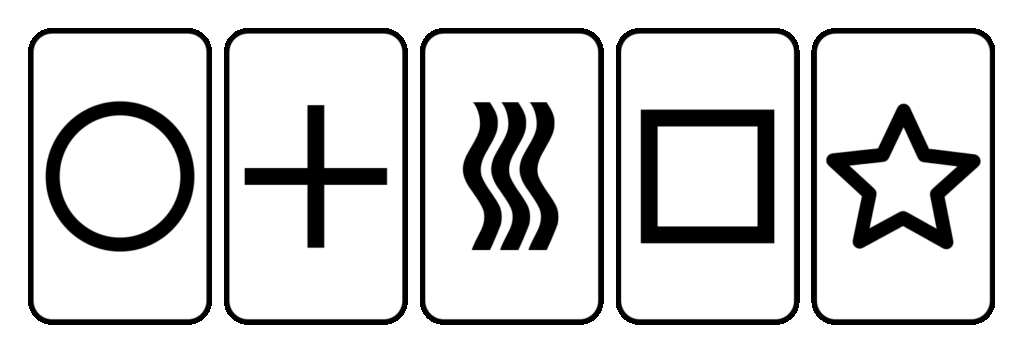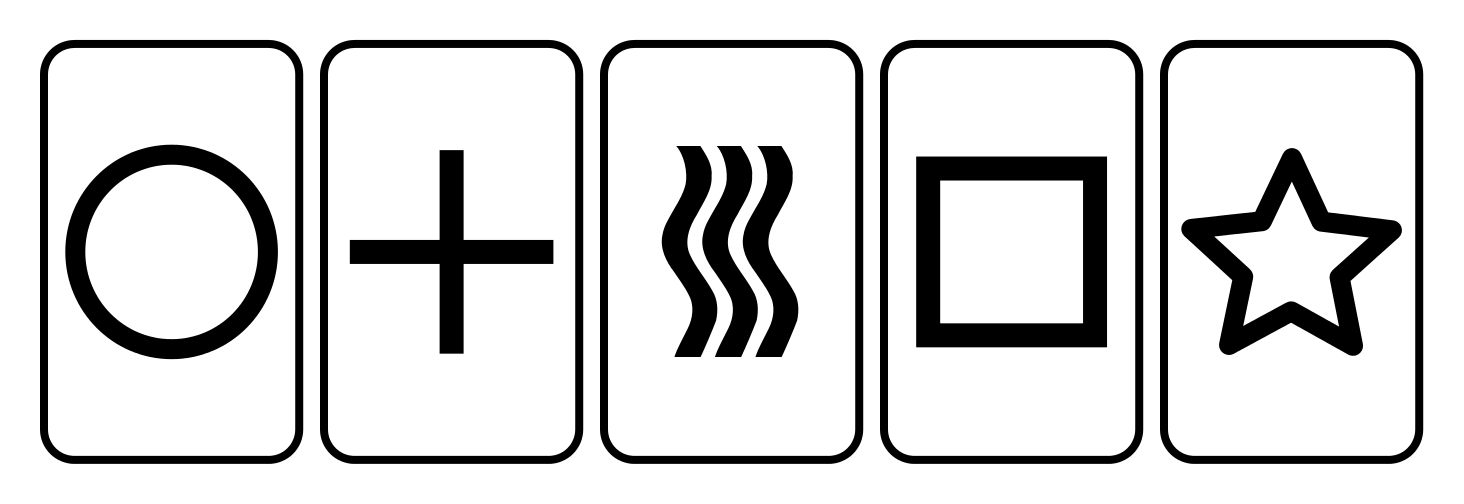
Unlocking Insights with Zener Cards: A Comprehensive Guide
Zener cards, a seemingly simple deck of five distinct shapes, have captivated researchers and enthusiasts alike for decades. Often associated with extrasensory perception (ESP) and parapsychology, Zener cards offer a tangible tool for exploring the potential of the human mind. This guide delves into the history, methodology, and enduring appeal of these intriguing cards, providing a comprehensive overview for both newcomers and seasoned investigators.
The Origins of Zener Cards
The story of Zener cards begins in the 1930s at Duke University, under the guidance of perceptual psychologist Karl Zener and parapsychologist J.B. Rhine. Rhine, determined to bring scientific rigor to the study of ESP, sought a standardized and easily quantifiable method for testing individuals’ purported psychic abilities. Existing methods were often subjective and prone to interpretation, making it difficult to draw definitive conclusions. Zener, working closely with Rhine, designed a set of five cards, each bearing a unique symbol: a circle, a cross, a wavy lines, a square, and a star. These simple geometric shapes were chosen for their clarity and distinctiveness, minimizing the potential for ambiguity or guesswork based on visual cues.
The initial purpose of Zener cards was to provide a controlled environment for testing claims of telepathy, clairvoyance, and precognition. Telepathy involved the transmission of thoughts from one person (the sender) to another (the receiver). Clairvoyance involved the ability to perceive objects or events without the use of the senses. Precognition involved the ability to foresee future events. By using Zener cards, Rhine and his team aimed to create a standardized protocol for evaluating these different forms of ESP.
How Zener Card Tests are Conducted
The basic Zener card test involves a sender and a receiver. The sender focuses on a randomly selected card from the deck, while the receiver attempts to identify the symbol on the card. The receiver’s guess is recorded, and the process is repeated multiple times, typically for a series of 25 trials (a complete deck). The number of correct guesses is then compared to the expected rate of success based on chance alone. With five possible symbols, the chance expectation is 20% (5 correct guesses out of 25). If an individual consistently scores significantly above this chance level, it is considered evidence, albeit controversial, of potential ESP ability.
Various modifications and variations of the Zener card test have been developed over the years. These include testing for clairvoyance, where the receiver attempts to identify the card without a sender present, and precognition, where the receiver predicts the order of the cards before they are revealed. Computerized versions of the Zener card test have also been created, allowing for automated data collection and analysis.
The Controversy Surrounding Zener Cards
Despite their initial promise, Zener cards and the research surrounding them have been met with considerable skepticism and controversy. Critics have raised concerns about methodological flaws, statistical anomalies, and the potential for fraud. One common criticism is that the original Zener card tests were not always conducted under strictly controlled conditions, potentially allowing for sensory leakage or subtle cues that could influence the receiver’s guesses. For example, slight variations in the card stock or markings on the back of the cards could inadvertently provide clues to the symbol on the front.
Furthermore, some researchers have questioned the statistical methods used to analyze the results of Zener card tests. Small deviations from chance expectation can sometimes occur due to random variation, and it is important to account for these fluctuations when interpreting the data. Critics argue that some researchers may have been too quick to attribute statistically significant results to ESP, without adequately considering other possible explanations.
The possibility of fraud has also been a concern in some cases. While most researchers are undoubtedly honest and well-intentioned, the potential for deliberate manipulation of the results cannot be entirely ruled out. In some instances, individuals claiming to possess psychic abilities may have used trickery or deception to achieve higher scores on Zener card tests.
The Enduring Appeal of Zener Cards
Despite the controversy, Zener cards continue to hold a certain fascination for many people. They represent a tangible and accessible way to explore the mysteries of the human mind and the potential for psychic abilities. For some, Zener cards are simply a fun and engaging way to test their intuition and perception. For others, they are a tool for serious investigation into the nature of consciousness and the limits of human potential. The simplicity of the cards also contributes to their appeal. Anyone can use them, regardless of their background or experience.
While scientific evidence for ESP remains elusive, the enduring appeal of Zener cards suggests a deep-seated human curiosity about the unknown. They serve as a reminder that there are still many unanswered questions about the nature of reality and the capabilities of the human mind.
Modern Applications of Zener Cards
Although primarily associated with parapsychology, Zener cards have found applications in other fields as well. In psychology, they have been used to study perception, attention, and cognitive biases. For example, researchers have used Zener cards to investigate how people’s expectations and beliefs can influence their perception of ambiguous stimuli. In education, Zener cards can be used as a tool for teaching probability and statistics. By conducting simple Zener card tests, students can learn about concepts such as chance expectation, statistical significance, and the importance of controlled experiments.
Furthermore, Zener cards have been incorporated into various games and recreational activities. They can be used as a tool for enhancing intuition and mindfulness. Some people use Zener cards as a form of meditation, focusing on the symbols and allowing their minds to quiet down. Others use them as a way to stimulate creativity and problem-solving skills. The versatility of Zener cards makes them a valuable tool for a wide range of purposes.
Tips for Using Zener Cards
If you are interested in experimenting with Zener cards, here are a few tips to keep in mind:
- Create a calm and focused environment: Minimize distractions and create a space where you can concentrate.
- Shuffle the cards thoroughly: Ensure that the order of the cards is truly random.
- Be open-minded: Approach the tests with a sense of curiosity and a willingness to explore the possibilities.
- Record your results: Keep track of your guesses and compare them to the expected rate of success.
- Don’t take it too seriously: Remember that Zener cards are primarily a tool for exploration and entertainment.
The Future of Zener Card Research
While the heyday of Zener card research may have passed, there is still potential for further investigation. With advancements in technology and statistical methods, it may be possible to conduct more rigorous and controlled studies of ESP using Zener cards. For example, brain imaging techniques could be used to investigate the neural correlates of ESP during Zener card tests. Furthermore, meta-analyses could be conducted to combine the results of multiple studies and provide a more comprehensive assessment of the evidence for ESP. Whether or not these efforts will ultimately yield conclusive results remains to be seen, but the enduring appeal of Zener cards suggests that the quest to understand the mysteries of the human mind will continue.
Zener cards, with their simple design and intriguing history, offer a unique window into the world of parapsychology and the potential for extrasensory perception. While scientific validation remains elusive, their enduring appeal speaks to our innate curiosity about the unknown and the boundless possibilities of the human mind. Whether used for serious research, casual experimentation, or simply as a tool for self-discovery, Zener cards continue to fascinate and intrigue those who dare to explore the boundaries of human consciousness. [See also: History of Parapsychology] [See also: Understanding ESP] [See also: Skepticism and Psychic Research]

